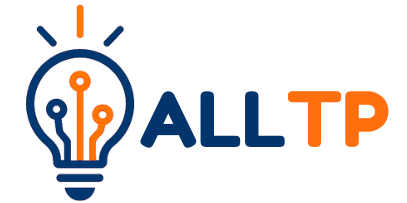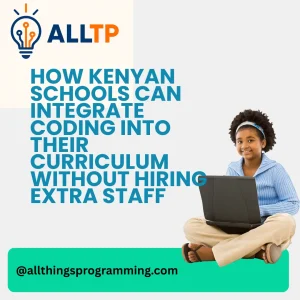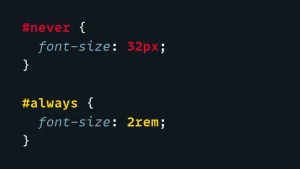In today’s digital world, coding is more than just typing commands into a computer; it’s both a creative and logical activity that challenges children to think critically, design solutions, and bring their ideas to life. From building games to automating simple tasks, coding encourages kids to express themselves while following structured logic.
Problem-solving, a vital part of childhood development, helps young learners make decisions, overcome obstacles, and adapt to new situations, skills that are essential both in and outside the classroom. Coding for kids empowers them to become better problem-solvers by teaching them to think logically, break down complex challenges, and persist through failure.
If you want to help your child develop critical thinking and future-ready skills, consider enrolling them in our kids’ coding program today. it’s an investment in their creativity, confidence, and problem-solving potential.
What is Problem-Solving?
Problem-solving is the ability to identify a challenge, think through possible solutions, and take steps to resolve it effectively. For children, this skill shows up in everyday situations, whether they’re figuring out how to complete a tough homework assignment, deciding how to share toys fairly with a sibling, or solving a tricky puzzle. These moments help kids learn how to think critically, make decisions, and stay calm under pressure.
In education, strong problem-solving skills lead to better performance in subjects like math, science, and reading. Beyond academics, they build confidence, independence, and the ability to face life’s uncertainties with a proactive mindset. Developing these skills early sets the foundation for success in school, relationships, and future careers.
How Coding Teaches Problem-Solving
Coding strengthens problem-solving skills by training children to think strategically and systematically. It introduces key concepts that mirror how real-world problems are approached and solved.
A. Breaking Down Big Problems into Smaller Steps
One of the core principles of coding is decomposition, the ability to break a complex task into smaller, manageable pieces. When kids learn to code, they begin to see that big goals, like creating a game in Scratch or designing a website, are actually made up of many smaller tasks. This teaches them to approach challenges step by step, making the process less overwhelming and more achievable.
B. Logical and Sequential Thinking
As part of the Coding Kenya movement, coding for 6-year-olds to 16-year-olds promotes logical and sequential thinking. Kids must follow a specific order of instructions to make things work, whether it’s moving a character across the screen or creating a loop in a program. This helps them understand cause and effect: when one thing happens, another follows.
Such thinking patterns are not only essential in coding but also in solving math problems, following scientific methods, and even planning daily routines.
C. Debugging and Iterative Thinking
Perhaps one of the most valuable aspects of coding is debugging, the process of identifying and fixing errors. Through this trial-and-error approach, children learn that making mistakes is not a failure, but a part of learning. They develop iterative thinking, where they refine their ideas, test new approaches, and keep trying until they succeed. This builds resilience, patience, and the confidence to keep going even when the solution isn’t obvious.
Real-Life Applications of Coding-Based Problem-Solving
The problem-solving mindset developed through coding goes far beyond the computer screen, it directly supports learning in key academic subjects and builds essential life skills. In math, coding helps children grasp concepts like patterns, variables, and logic, as they use algorithms to solve problems and analyze outcomes.
In science, coding encourages experimentation, hypothesis testing, and data interpretation, all core elements of the scientific method. Even in writing, coding sharpens storytelling and structure, as kids plan sequences, build narratives, and organize content logically.
For example, a student creating an animation might use conditional statements (if-then logic) to control character behavior, which mirrors the kind of reasoning used in solving math word problems. Another child might use a loop in a program to automate repetitive tasks, similar to recognizing patterns in a science experiment. These skills easily transfer across subjects, helping children think more clearly and solve problems more efficiently.
Beyond academics, coding builds transferable skills such as creativity, adaptability, and decision-making. Kids learn to design original projects, adjust when something doesn’t work, and choose the best path from multiple possible solutions. These abilities are not just useful in school, they are vital in everyday life and future workplaces.
According to Business Insider, modern coding education fosters innovation and problem-solving skills that help young learners adapt to rapid technological change and prepare for the jobs of the future.
Benefits of Teaching Coding to Kids
Teaching coding to kids offers far-reaching benefits that extend well beyond computer screens. Here are some of the most impactful advantages:
1. Enhances Problem-Solving Skills
Coding teaches kids how to approach problems logically and systematically. They learn to break down challenges, test solutions, and refine their approach, building a mindset that helps them in academics and everyday situations.
2. Boosts Creativity
Far from being just technical, coding is a creative outlet. Whether designing a game, building an animation, or creating a story with interactive elements, kids can bring their ideas to life in unique ways.
3. Develops Persistence and Resilience
Coding often involves debugging, fixing errors that prevent a program from working. Through this process, kids learn to persevere, experiment, and keep trying until they succeed, which builds resilience and patience.
4. Improves Logical and Computational Thinking
Coding strengthens a child’s ability to think step-by-step and understand how smaller components work together. This helps with math, science, and even reading comprehension, where structured thinking is essential.
5. Encourages Collaboration
Many coding activities are done in groups or shared online. Kids learn to work together, share ideas, and support each other, valuable social and teamwork skills that are important in school and later in the workplace.
6. Prepares Kids for the Future Job Market
As technology continues to evolve, digital literacy will be as important as reading and math. Teaching kids to code prepares them for high-demand careers in STEM (science, technology, engineering, and math) and empowers them to understand and even shape the technology they use daily.
7. Builds Confidence
Creating something from scratch and seeing it work gives kids a strong sense of accomplishment. Coding projects provide immediate feedback and visible results, which can significantly boost self-esteem.
How Parents and Educators Can Support
While coding has powerful benefits for problem-solving, support from parents and educators is key to helping children unlock their full potential. One of the most important steps is encouraging a growth mindset, the belief that abilities can be developed through effort and persistence. When kids understand that struggling with a challenge is part of learning, they become more willing to take risks and try again after failure.
Providing access to coding resources, both online and offline, is also essential. For families with limited internet access, unplugged activities using puzzles, worksheets, or coding cards can introduce the basics. For those online, platforms like All Things Programming, Scratch, Blockly, and Code.org offer free, child-friendly environments where kids can learn to code at their own pace while creating games, stories, or animations.
It’s equally important to normalize failure as part of the process. Parents and teachers should celebrate the effort kids put into problem-solving, even when the solution doesn’t come immediately. Encouraging kids to debug their code and try different approaches helps them build resilience and see mistakes as opportunities to grow.
With the right mindset, tools, and support, children can develop not just coding skills but also the confidence and problem-solving ability they’ll carry with them for life.
To conclude, coding is much more than a technical skill; it’s a powerful tool for developing a problem-solving mindset in children. Through our coding for beginners program, kids learn to break down complex challenges, think logically and creatively, and persevere through setbacks. These are the same skills they need to succeed in school, navigate everyday life, and thrive in an increasingly digital world.
By encouraging coding early on and supporting kids with the right resources and mindset, we prepare them not just to use technology, but to shape it — and to solve the problems of tomorrow with confidence and curiosity.
Ready to start your child’s journey in coding? Explore beginner-friendly programs that make coding fun, hands-on, and accessible, and give your child the skills to build, create, and lead in Kenya’s digital future.




